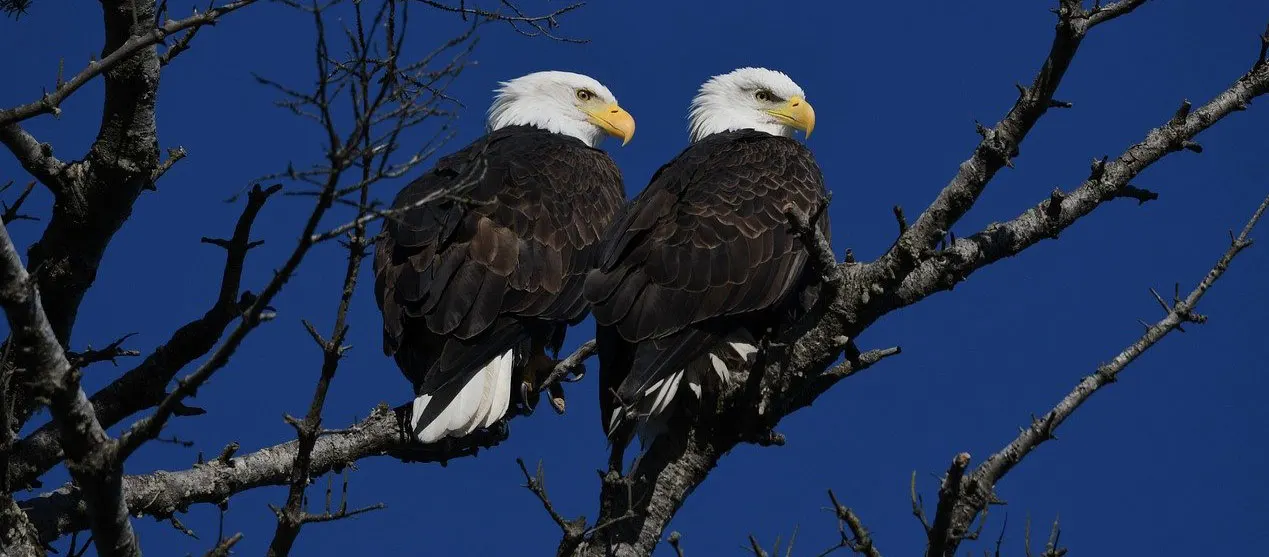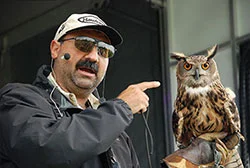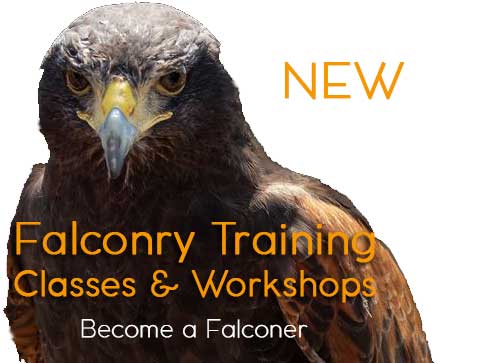- Falconry is the ancient art of using birds of prey to hunt.
- Falconry is a fascinating sport with rich cultural heritage in many cultures around the world. It has been considered “the sport of Kings” .
- Public education about the sport of falconry and teaching about birds of prey introduce many to wild life conservation and expand the public's environmental awareness. The health and number of birds of prey in an ecosystem is a barometer of that ecosystem's viability and health.
- Learning about falconry can lead to personal development and encourages a strong connection to nature.

Why is Falconry Education beneficial?
Many of our species - humans- live in cities, also known as concrete jungles. We live, work, eat and play in the city. Few of us actually get to spend much time in nature, much less understand the intricate ecosystems necessary to sustain life and survival of all species. What better way to experience the great outdoors than in a great, green space surrounded by nature and have a bird of prey on your arm?
Awareness and Knowledge of Wildlife Habitats and Ecosystems
Falconers are deeply knowledgable and passionate about birds of prey - or raptors - and their ecosystems, including their prey. Using that knowledge and their passion for the sport, Falconers aim to teach about raptors and their role in the environment. Falconers foster a greater understanding and appreciation for wildlife and the natural habitats they live in.
Inspiring Change
Falconers and their raptors regularly hunt in nature and have a unique opportunity to observe environmental changes or issues. Falconers are very concerned about the environment and often involved in conservation efforts such as breeding programs for endangered species and habitat restoration projects. By teaching and informing the public about these initiatives, we can inspire support and participation in different conservation efforts. There is an intricate relationship between the raptor and its habitat and ecosystem and learning about this encourages more people to become more environmentally responsible in their attitudes and behaviours. If one of the people learning about the sport of falconry happens to be the head of a large corporation that may be contributing to deforestation, pollution, or in any way hurting the ecosystems of these magnificent birds of prey, that one person may be able to make a significant change that will help struggling ecosystems or wildlife.
Health Benefits of spending Time in Nature
While working with and learning about birds of prey, people find or strengthen their innate connection with nature. This has many health benefits, especially mental health. Being in nature has been scientifically shown to decrease stress, anxiety, depression, and to also lower blood pressure and heart rate. Just unplugging from today’s fast paced world and being in nature, working and learning about wildlife and raptors can give you a sense of wellbeing that no doctor or pharmaceutical can come close to. Just the thrill of having a Harris Hawk fly to you and land on your outstretched hand is amazing. Falconers give details about the history of falconry, they teach about the different species of raptors, what they eat, how they live in the wild, nesting habits. It really opens your mind to the magnificence of raptors, wildlife in general and even all of nature.
Tourism and Supporting Local Businesses
There can also be tourism benefits that can help support local businesses wherever there is a falconry program. Falconry demonstrations and experiences tend to be quite unique and can bring hundreds and even thousands of people to an area they’ve never been to before. Towns or cities where such experiences are offered can realize significant economic impact in their area. Even if people just stop for fuel, or lunch, that means a growth in their economy that never would have been without the falconry experience nearby.
History and Preservation of Culture
The historical significance, knowing that man was flying birds of prey not just for sport, but to hunt for food, give people an appreciation for the ingenuity and creativity of man thousands of years ago. For many cultures around the world, learning about falconry and being able to fly a bird of prey from your hand can preserve the heritage of that culture and foster new generations into developing an interest in flying birds of prey.
Why is a Falconer uniquely Qualified to share Knowledge with the Public?
 Falconers know their birds. They know their own and have learned about other species of raptors. Falconers undergo rigorous testing and training to become a falconer. Keeping and caring for a bird of prey is not just a weekend endeavor. Caring for a live animal takes a certain passion and commitment to train, learn, and get good at it. A falconer has to have knowledge of the raptors' habitats and what their preferred prey is. It depends on the size and species of raptor to determine what their ideal prey may be. Having detailed insight into raptor biology, habitat, behaviour and ecology allows Falconers to promote an informed and positive attitude about raptors and a healthy environment to the general public.
Falconers know their birds. They know their own and have learned about other species of raptors. Falconers undergo rigorous testing and training to become a falconer. Keeping and caring for a bird of prey is not just a weekend endeavor. Caring for a live animal takes a certain passion and commitment to train, learn, and get good at it. A falconer has to have knowledge of the raptors' habitats and what their preferred prey is. It depends on the size and species of raptor to determine what their ideal prey may be. Having detailed insight into raptor biology, habitat, behaviour and ecology allows Falconers to promote an informed and positive attitude about raptors and a healthy environment to the general public.
Experience Falconry and Birds of Prey for Yourself
Falconry education offers a unique experience where the public can come into contact with nature, and open themselves to new opportunities to become aware of wildlife and conservation, how the health of raptors is intricately connected to with the heath of the ecosystem, and the role they can play in helping to keep our environment clean and habitable for raptors and all wildlife.
The health benefits to you alone makes it worth your while to find a falconry experience near you. Hawkeye Bird and Animal control runs Falconry Experiences by well trained, caring, and passionate falconers in the Acton, Ontario area, just west of the GTA. We have 10 beautiful acres where you are get to enjoy the outdoors. You will see our eagles, hawks, falcons and owls up close and in person. You will get to fly one, too. We offer experiences every Thursday, Friday, Saturday, Sunday and sometimes Monday, or by special appointment. We look forward to your call and seeing you and sharing with you what we know and live every day!














